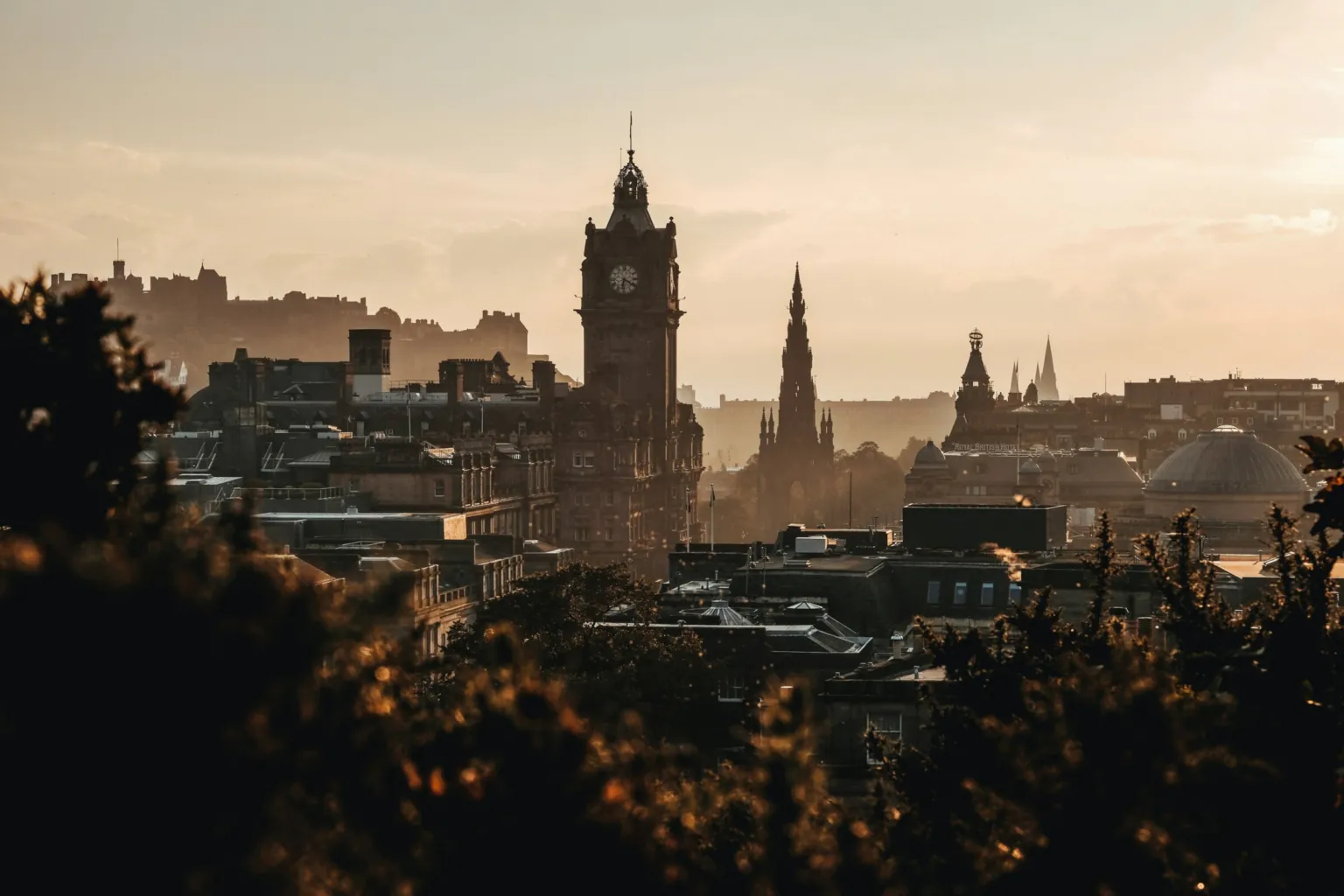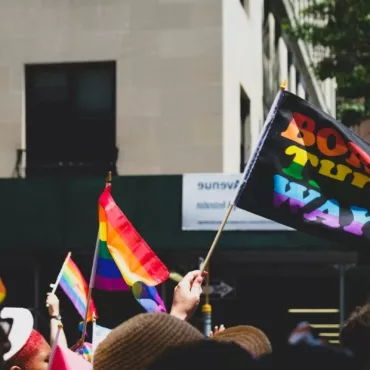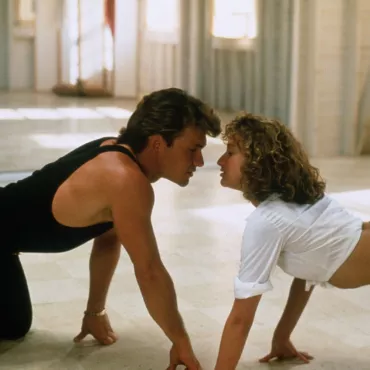Carly Brown, poet, writer, lecturer at the University of Glasgow

I moved to Scotland in 2010 because I was enrolled in an undergraduate program at St. Andrews University. Before that, I lived in Austin, Texas, which is much larger. St. Andrews, on the other hand, is a tiny picturesque town and I was drawn to its cozy atmosphere and sense of history. At the time, I was looking for something different from the metropolitan life I was used to. St. Andrews seemed like the perfect place to escape.
A few years later I moved to Glasgow to do a master’s degree. Then I settled in Edinburgh, which I think is one of the most beautiful cities in the world. The architecture, the atmosphere and the location amongst the hills and the water – everything is absolutely charming.
When I first came to Scotland, I was totally unprepared for four o’clock sunsets and extreme cold. In Texas, the sun sets at about the same time all year round. My first winter in St. Andrews was particularly harsh – it was one of the worst winters in decades, with heavy snowfall, flight cancellations, and railroad disruptions. I remember buying rubber boots to walk in the snow – I just didn’t know that snow needed different, special shoes.


So if you’re thinking about going to Scotland, my advice is to be sensible about your choice of clothing, buy good waterproof boots and jackets. Take it seriously because it’s the dampness, not the low temperatures, that makes you freeze. It’s very, very noticeable. And my second piece of advice is not to underestimate the sun deficit. I would recommend getting a SAD lamp that mimics daylight. It’s also worth keeping an eye on your mental health between November and February. Sometimes people don’t realize that they’re a little depressed or their health has declined – we just live life on a roll and don’t notice.
Despite the difficulties, I have grown to love the Scottish way of life. The people here are incredibly warm, funny, simple. There is a special sense of community. As a poet, I appreciate the cultural richness that Scotland offers: it pays a lot of attention to poetry and the arts, honors outstanding personalities like Robert Burns, holds art festivals, and generally creates an environment where creativity is both valued and supported.

Living in Edinburgh brings me joy. It’s a city that combines the coziness of a small town with the convenience of a big city. Compared to Glasgow, which seems more urban and active all year round, Edinburgh’s charm is in the architecture and seasonal festivals like the Fringe. Although I sometimes miss Glasgow’s concert scene or the familiar surroundings of my hometown, the atmosphere of Edinburgh continues to enchant. If you come to visit, I highly recommend taking a walk through The Meadows – it’s a large green park near Edinburgh University. I spent a lot of time there, especially during the lockdown.
I love the landscapes of Scotland, especially the Highlands. These places have magical, almost mythical qualities. The combination of harsh climate, secluded beauty and a sense of history that literally permeates the land is inspiring. I’ve been lucky enough to spend time there on writer’s residencies, and each visit strengthens the connection.
When I think about my future, Edinburgh seems like the right place. My partner and I plan to settle here more firmly, perhaps buying an apartment in the next few years. Although there may be opportunities elsewhere, such as London or even the States, right now Scotland feels like home to me.
Ivan Varchenko, saxophonist, arm wrestler

I moved to Glasgow in 2019. Before that I was living in London, studying at The Purcell School for Young Musicians. I moved because I was offered a scholarship to the Royal Conservatoire of Scotland – I wanted to develop further as a musician. Eventually I graduated from the Conservatoire and stayed in Glasgow. I have professional connections here, plus it’s much cheaper to rent an apartment and live here in general. For living in Scotland I would recommend Glasgow and Stirling. Edinburgh is suitable if prices and crowds of tourists don’t bother you.
Moving to Glasgow was not as hard as, for example, coming from my native Kazakhstan to London – that’s when I faced a radical change of mentality around me.
I won’t argue, there are more opportunities in England, both for music and sport. In London alone there are three armwrestling clubs, while we have one for the whole of Scotland. At the last national competitions only three out of three hundred people represented Scotland.
From what I’ve seen, the English have an incredible appreciation of themselves – it’s much easier in Glasgow in that sense. I like people from sport – they don’t have the snobbery that is unfortunately often associated with artists. Scottish athletes are some of the most friendly people I’ve met.
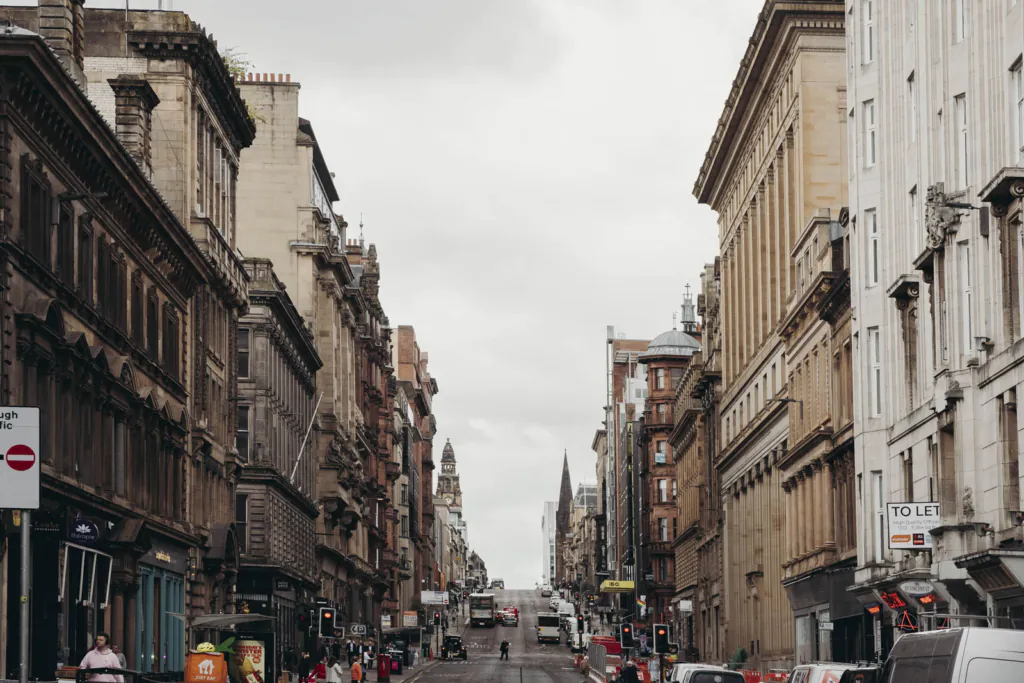
I remember after moving here, I was struck by the driving culture in Scotland and the UK in general. In the former Soviet Union, it is customary to behave aggressively on the road: in our country, it is normal to hear honking horns all the time, to cut people off. Here you won’t even hear a signal, everyone is as friendly as possible. The attitude to street musicians is also interesting. In Kazakhstan, alas, music is not considered a profession at all, and playing on the street is not even considered a profession at all… In Glasgow, basking is just advertising yourself as a musician, performing for fun.
To explore the country freely, of course, you need a driver’s license. The most beautiful points in the Highlands are the most difficult to reach. Of the places I’ve been to, I can recommend Ayr. The beach of the town faces America and Northern Ireland, a gorgeous place — a lot of interesting folk musicians come from there. The second location in the personal top is in Glasgow itself, it’s Pollok Park. Despite being an industrial city, it has some very interesting fauna: mountain cows, five species of swans. I like Scottish birds, especially the puffins, aka deadbirds. Third place goes to the legendary Laurrieston local pub. It has a working class ethos, an incredibly authentic place.
Laura Thurlow, poet and performance actress

I first visited Edinburgh in 2011 on a school trip and immediately fell in love. I was impressed by its beauty, walkability and friendliness. I really moved to Scotland in 2016 to study as an exchange student, although it was also a kind of escape. In Canada, I had a difficult period: a close person died, and it changed my perspective on everything, including my studies. After that I went to Toronto, but after about a year, after what I can only describe as a nervous breakdown, I decided to return to Scotland. I realized that the last time I felt truly happy was here.
My dad is from Yorkshire and my mom is a real Canadian, so I don’t have strong Scottish roots. When I was growing up though, there was a sense of heritage around, for example the Highland games were held in a neighboring town, there were lots of people with Scottish roots. Now I live in Glasgow. If I had to choose a place to live in Scotland for the long term, I would prefer a rural area, perhaps an island such as Islay with its proximity to the sea and a relaxed lifestyle. Edinburgh is significant to me because of memories. I like its traditional feel, compactness and excellent public transportation. However, Glasgow has a more innovative spirit and a livelier cultural scene, which I also like.

The hardest part of the move was not the weather – I’m from Canada, where winters are much harsher. It was the loneliness and the difficulty in building connections. When you’re new to a place, you meet people who don’t always have your best interests at heart. It’s easy to feel vulnerable and isolated. But despite this, I think the Scots are some of the kindest, most open and welcoming people I’ve ever met. They are natural storytellers, always up for a good conversation and have a great sense of humor.
What I love most about Scotland is the dramatic scenery: the rugged coastline, the proximity to the sea, and the crazy architecture. The community of artists, especially poets and musicians, is deeply rooted in Scottish history and culture, much more so than in Canada. In Toronto, I went to a poetry reading once and it was like a crazy rock concert. Here, poetry nights are held in cozy pubs, everything is very chamber-like.

How has living in Scotland changed my lifestyle? I would say not much, but significant. I walk a lot more because the cities are built for people, unlike North America where everything is designed for cars. Here you have to hang laundry because there are no drying machines. The food is different, cheese is much cheaper. I seem to have started drinking more – not sure if that’s a good thing. Oh, one more thing! Here you have to say hello to everyone – it’s considered rude not to respond to someone who has spoken to you on the street. In Canada, this interaction is viewed with suspicion, but in Glasgow it’s part of the city’s charm. They talk to you – and you talk. You open up.
Egor Semyonov, bank clerk.

A year ago I moved from Birmingham to Edinburgh. Formally because of the job – I was offered a position in a large bank. But in fact I was specifically looking for any vacancy in this part of the country. The nature here is beautiful — especially compared to the concrete neighborhoods of Birmingham. When you enter Scotland, the landscape changes immediately: abandoned warehouses and wastelands are replaced by mountains and lakes. Plus, Edinburgh has an active financial market, with the Royal Bank of Scotland head office, Deloitte and other major players. If you open LinkedIn, you will see that the lion’s share of work is concentrated here.
Moving such a long distance was not easy. Naturally, it is much warmer and sunnier in England, but I even like the gloomy and rainy weather. I live near the Pentland Hills, which is almost a suburb. Fifteen minutes on foot and you have an incredible view: hills, woods. You can fish, pick mushrooms and berries. There are a lot of badgers, they are very funny, clucking on the asphalt. We have our own garden, with apple trees growing in it. The most wonderful places for me. Also in Scotland free (included in council tax) and very clean running water. And, of course, whisky. You can also find single malt in England, but it is more pleasant to enjoy such drinks where they come from.

That said, I don’t like Scottish cuisine very much. It seems to lack a middle ground: lobsters and lobsters on one side, and Deep Fried Mars on the other, all greasy and battered. In between, there are only octopus and haggis. So for now this niche is occupied by Chinese and Indian restaurants. Another minus – I personally don’t really like the smalltalk, when you’re sitting on the bus and strangers suddenly start talking to you. It feels weird. I think it’s easier to make friends in London, though: there are more activities and events there.
If you’re a Potterman, Scotland is a must-see for that very steam train ride in the Glencoe Valley. The Highlands are nothing to speak of, my favorite place is Loch Rannoch. What do you picture when someone says mountains? This is exactly how postcard-perfect Loch Rannoch looks. The country has retained a healthy nationalism, with clan totems everywhere in the mountains – a connection to ancestors and cultural heritage is honored. Literally every house in Edinburgh is interesting, especially on the Royal Mile. I really like Leith, a neighborhood of new buildings in the north of Edinburgh, by the sea. My wife doesn’t agree with me, though: she thinks it’s deserted and scary.
I’m only ready to go to London if I have the opportunity to live in Canary Wharf or the City of London. Just to try it out for a couple of years, to get a feel for this lifestyle. I think in the end I would still come back to Edinburgh: it’s nice, quiet, measured.
Angela Landon, co-owner of Ardkinglas House estate

I moved to Ardkinglas in 1998, when my husband David inherited the house. But I’d been here before: I first visited the house when I was sixteen – I’m half Finnish, half English, and my parents knew David’s great-aunt. I had always lived in big cities before moving to Scotland, and it was difficult at first – especially when my daughter was born. I missed the real snowy Finnish winters compared to the rainy and wet Scottish winters. I also, of course, missed my loved ones. Everything in the house was home to my husband and his family. Now, twenty-two years later, I can say that this place has become mine too.

Living at Ardkinglas House is a privilege, but also a great responsibility. The house was built in 1907 by David’s great-grandfather and designed by the famous architect Lorimer. It was the first house in Argyll to have electricity, and in general it is built with astonishing craftsmanship, every little detail. All the more amazing that it was built in just 18 months! It has always belonged to the Noble family, but first served as a summer house. It was also used for musical evenings – we have revived this tradition.
People somehow think that our life in such luxurious interiors is also luxurious. In reality, it isn’t. The house requires a huge amount of work, especially after big events or movie shoots. On top of that, I work in the garden every day and we raise sheep. When there are no guests, our family doesn’t use the whole house – we have a small apartment in one of the wings.
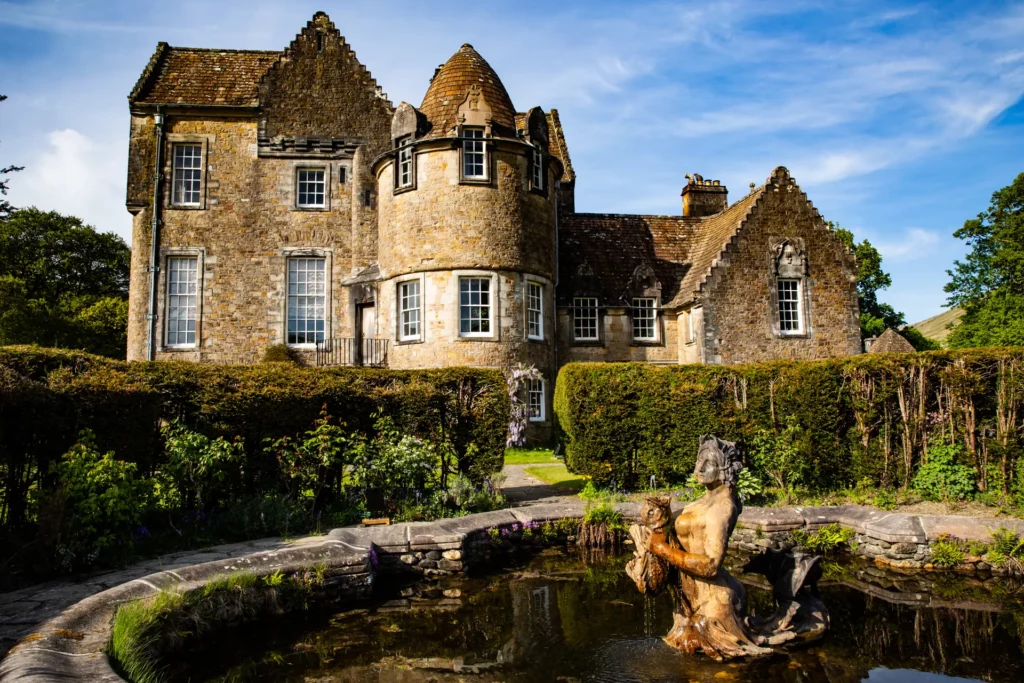
As well as music nights and weddings, there is a lot of filming going on at Ardkinglas. My favorite is The Water House, a very cute movie about a boy who finds an egg on the coast. Then an animal hatches out of the egg and becomes a monster, but they still become friends. When we first moved here they filmed My Life So Far with Colin Firth, and more recently A Very British Scandal with Claire Foy.
Ever have thoughts of moving to a regular apartment somewhere in the city? All the time! What helps me is that I often go to Glasgow, spend a day or two there, go to the theater. We do lead a rather secluded life. Over the years, though, we’ve built up a special community around the house, with interesting people from all over the country staying with us.
Living in a place like Ardkinglas House is definitely not for everyone: in winter, for example, the house is very, very cold, not everyone can stand it. The Finnish language has an untranslatable word “sisu” – a special inner strength, will, character. But the house and the magical places around it give me much more than they take away. I try to walk every day, nature energizes me. I swim in the pond, do yoga – in August we even held a yoga weekend in the house. My main advice to those coming to Scotland is this: don’t let the weather stop you, and don’t let the rain decide what you do today. Explore as much as you can, make sure you go to the northern islands of Mull and Ayon. And, of course, to Argyll – we’ve got plenty to see.
